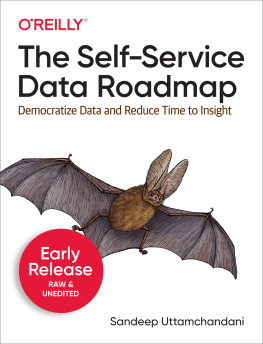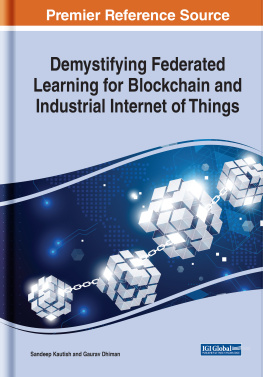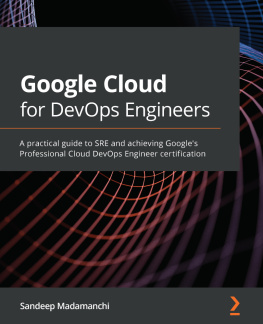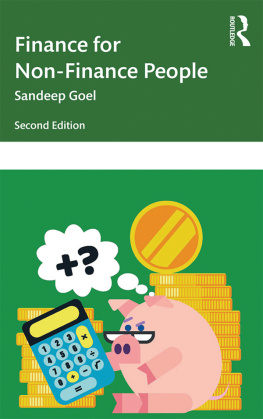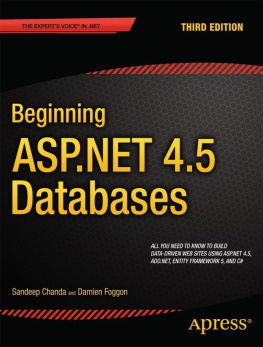Sandeep Uttamchandani - The Self-Service Data Roadmap
Here you can read online Sandeep Uttamchandani - The Self-Service Data Roadmap full text of the book (entire story) in english for free. Download pdf and epub, get meaning, cover and reviews about this ebook. year: 2020, publisher: OReilly Media, Inc., genre: Home and family. Description of the work, (preface) as well as reviews are available. Best literature library LitArk.com created for fans of good reading and offers a wide selection of genres:
Romance novel
Science fiction
Adventure
Detective
Science
History
Home and family
Prose
Art
Politics
Computer
Non-fiction
Religion
Business
Children
Humor
Choose a favorite category and find really read worthwhile books. Enjoy immersion in the world of imagination, feel the emotions of the characters or learn something new for yourself, make an fascinating discovery.
- Book:The Self-Service Data Roadmap
- Author:
- Publisher:OReilly Media, Inc.
- Genre:
- Year:2020
- Rating:5 / 5
- Favourites:Add to favourites
- Your mark:
- 100
- 1
- 2
- 3
- 4
- 5
The Self-Service Data Roadmap: summary, description and annotation
We offer to read an annotation, description, summary or preface (depends on what the author of the book "The Self-Service Data Roadmap" wrote himself). If you haven't found the necessary information about the book — write in the comments, we will try to find it.
The Self-Service Data Roadmap — read online for free the complete book (whole text) full work
Below is the text of the book, divided by pages. System saving the place of the last page read, allows you to conveniently read the book "The Self-Service Data Roadmap" online for free, without having to search again every time where you left off. Put a bookmark, and you can go to the page where you finished reading at any time.
Font size:
Interval:
Bookmark:

by Sandeep Uttamchandani
Copyright 2020 Sandeep Uttamchandani. All rights reserved.
Printed in the United States of America.
Published by OReilly Media, Inc., 1005 Gravenstein Highway North, Sebastopol, CA 95472.
OReilly books may be purchased for educational, business, or sales promotional use. Online editions are also available for most titles (http://oreilly.com). For more information, contact our corporate/institutional sales department: 800-998-9938 or corporate@oreilly.com .
- Acquisitions Editor: Jessica Haberman
- Developmental Editor: Corbin Collins
- Production Editor: Beth Kelly
- Copyeditor: Holly Bauer Forsyth
- Proofreader: Eleanor Abraham
- Indexer: nSight, Inc.
- Interior Designer: David Futato
- Cover Designer: Karen Montgomery
- Illustrator: OReilly Media, Inc.
- September 2020: First Edition
- 2020-09-02: First Release
See http://oreilly.com/catalog/errata.csp?isbn=9781492075257 for release details.
The OReilly logo is a registered trademark of OReilly Media, Inc. The Self-Service Data Roadmap, the cover image, and related trade dress are trademarks of OReilly Media, Inc.
The views expressed in this work are those of the author(s), and do not represent the publishers views. While the publisher and the author(s) have used good faith efforts to ensure that the information and instructions contained in this work are accurate, the publisher and the author(s) disclaim all responsibility for errors or omissions, including without limitation responsibility for damages resulting from the use of or reliance on this work. Use of the information and instructions contained in this work is at your own risk. If any code samples or other technology this work contains or describes is subject to open source licenses or the intellectual property rights of others, it is your responsibility to ensure that your use thereof complies with such licenses and/or rights.
978-1-492-07525-7
[LSI]
For my parents; my teacher and mentor, Gul; my wife, Anshul; and my kids, Sohum and Mihika.
The following typographical conventions are used in this book:
ItalicIndicates new terms, URLs, email addresses, filenames, and file extensions.
Constant widthUsed for program listings, as well as within paragraphs to refer to program elements such as variable or function names, databases, data types, environment variables, statements, and keywords.
Constant width boldShows commands or other text that should be typed literally by the user.
Constant width italicShows text that should be replaced with user-supplied values or by values determined by context.
This element signifies a tip or suggestion.
This element signifies a general note.
This element indicates a warning or caution.
Supplemental material (code examples, exercises, etc.) is available for download at https://github.com/oreillymedia/title_title.
If you have a technical question or a problem using the code examples, please send email to .
This book is here to help you get your job done. In general, if example code is offered with this book, you may use it in your programs and documentation. You do not need to contact us for permission unless youre reproducing a significant portion of the code. For example, writing a program that uses several chunks of code from this book does not require permission. Selling or distributing examples from OReilly books does require permission. Answering a question by citing this book and quoting example code does not require permission. Incorporating a significant amount of example code from this book into your products documentation does require permission.
We appreciate, but generally do not require, attribution. An attribution usually includes the title, author, publisher, and ISBN. For example: The Self-Service Data Roadmap by Sandeep Uttamchandani (OReilly). Copyright 2020 Sandeep Uttamchandani, 978-1-492-07525-7.
If you feel your use of code examples falls outside fair use or the permission given above, feel free to contact us at .
For more than 40 years, OReilly Media has provided technology and business training, knowledge, and insight to help companies succeed.
Our unique network of experts and innovators share their knowledge and expertise through books, articles, and our online learning platform. OReillys online learning platform gives you on-demand access to live training courses, in-depth learning paths, interactive coding environments, and a vast collection of text and video from OReilly and 200+ other publishers. For more information, visit http://oreilly.com.
Please address comments and questions concerning this book to the publisher:
- OReilly Media, Inc.
- 1005 Gravenstein Highway North
- Sebastopol, CA 95472
- 800-998-9938 (in the United States or Canada)
- 707-829-0515 (international or local)
- 707-829-0104 (fax)
We have a web page for this book, where we list errata, examples, and any additional information. You can access this page at https://oreil.ly/ssdr.
Email to comment or ask technical questions about this book.
For news and information about our books and courses, visit http://oreilly.com.
Find us on Facebook: http://facebook.com/oreilly
Follow us on Twitter: http://twitter.com/oreillymedia
Watch us on YouTube: http://youtube.com/oreillymedia
Data is the new oil. There has been exponential growth in the amount of structured, semi-structured, and unstructured data collected within the enterprise. Insights extracted from the data are becoming a valuable differentiator for enterprises in every industry vertical, and machine learning (ML) models are used in product features as well as improved business processes.
Enterprises today are data-rich, but insights-poor. ). The remaining 95% of the effort is spent on data engineering related to discovering, collecting, and preparing data, as well as building and deploying the models in production.
While an enormous amount of data is being collected within data lakes, it may not be consistent, interpretable, accurate, timely, standardized, or sufficient. Data scientists spend a significant amount of time on engineering activities related to aligning systems for data collection, defining metadata, wrangling data to feed ML algorithms, deploying pipelines and models at scale, and so on. These activities are outside of their core insight-extracting skills and bottlenecked by dependency on data engineers and platform IT engineers who typically lack the necessary business context. The engineering complexity also limits data accessibility to data analysts and scientists rather than democratizing it to a growing number of data citizens in product management, marketing, finance, engineering, and so on. While there is a plethora of books on advancement in ML programming as well as deep-dive books on specific data technologies, there is little written about operational patterns for data engineering required to develop a self-service platform to support a wide spectrum of data users.
Font size:
Interval:
Bookmark:
Similar books «The Self-Service Data Roadmap»
Look at similar books to The Self-Service Data Roadmap. We have selected literature similar in name and meaning in the hope of providing readers with more options to find new, interesting, not yet read works.
Discussion, reviews of the book The Self-Service Data Roadmap and just readers' own opinions. Leave your comments, write what you think about the work, its meaning or the main characters. Specify what exactly you liked and what you didn't like, and why you think so.

